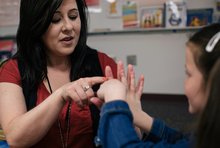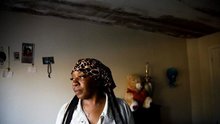0
Case study
Community:
Aug 1, 2022
Created by the Older Americans Act in 1973, AAAs are part of the national Aging Network. AAAs are the local leaders that develop, coordinate, and deliver a wide range of home and community-based services. These services include information and referral/assistance, case management, home-delivered meals and meals in
congregate settings, in-home services, caregiver supports, transportation, evidence based health and wellness programs, long-term care ombudsman programs, and more. People who receive services provided by AAAs have improved health and well-being, helping them remain in their homes and thrive in the community.
Authored by: U.S Administration for Community Living
Topics: Disabilities, Food insecurity, Homelessness, Housing, Low-income, Seniors, Supportive housing
 Shared by Sandra Ware
Shared by Sandra Ware
Sandra Ware posted a
on Oct 18, 2022
U.S Administration for Community Living
Created by the Older Americans Act in 1973, AAAs are part of the national Aging Network. AAAs are the local leaders that develop, coordinate, and deliver a wide range of home and community-based services.
0
Case study
Community:
Aug 1, 2022
As an Area Agency on Aging (AAA), AgeSpan engages in innovative partnerships with housing providers through the Massachusetts Supportive Housing Program (MSHP). Working with property managers at designated local housing sites, AgeSpan places staff as resident service coordinators (RSCs). The RSCs deliberately build strong, trusting relationships with residents, offering a daily touchstone that greatly improves quality of life. When housing and services are coordinated, older adults and people with disabilities are
better able to live well in the community.
Authored by: U.S administration for Community Living
Topics: Disabilities, Food insecurity, Housing, Low-income, Seniors
 Shared by Sandra Ware
Shared by Sandra Ware
Sandra Ware posted a
on Oct 18, 2022
U.S administration for Community Living
As an Area Agency on Aging (AAA), AgeSpan engages in innovative partnerships with housing providers through the Massachusetts Supportive Housing Program (MSHP). Working with property managers at designated local housing sites, AgeSpan places staff as resident service coordinators (RSCs).
0
News Article
Community:
Jan 6, 2020
Scope of Practice article on the American Medical Association's website
Authored by: Tanya Albert Henry, American Medical Association
Topics: Cost effectiveness, Health
 Shared by Camille Anoll-Hunter
Shared by Camille Anoll-Hunter
Camille Anoll-Hunter posted a
on Aug 26, 2021
Tanya Albert Henry, American Medical Association
Scope of Practice article on the American Medical Association's website
0
Podcast
Community:
Aug 19, 2021
The social determinants of health are interactive and multi-faceted, but often the experts who address them are siloed—as are their data. How do we share the data that can tell us the full story about the people who rely on—and receive—support? Chris Tappan and Lori Hunter discuss data systems, collaboration between agencies, and the vital importance of equitable services in this latest episode of The Intersect.
Authored by: Abt Associates
Topics: Data sharing, Health
 Shared by Jordan Jackson
Shared by Jordan Jackson
Jordan Jackson posted a
on Aug 19, 2021
The social determinants of health are interactive and multi-faceted, but often the experts who address them are siloed—as are their data. How do we share the data that can tell us the full story about the people who rely on—and receive—support?
0
Podcast
Community:
Jun 16, 2021
The social determinants of health are interactive and multi-faceted, but often the experts who address them are siloed—as are their data. How do we share the data that can tell us the full story about the people who rely on—and receive—support? Chris Tappan and Lori Hunter discuss data systems, collaboration between agencies, and the vital importance of equitable services in this latest episode of The Intersect.
Authored by: Eric Tischler, Chris Tappan, and Lori Hunter with ABT Associates
Topics: Child welfare, COVID-19, Data sharing, Health
 Shared by Camille Anoll-Hunter
Shared by Camille Anoll-Hunter
Camille Anoll-Hunter posted a
on Jun 25, 2021
Eric Tischler, Chris Tappan, and Lori Hunter with ABT Associates
The social determinants of health are interactive and multi-faceted, but often the experts who address them are siloed—as are their data. How do we share the data that can tell us the full story about the people who rely on—and receive—support?
0
Podcast
Community:
Jan 13, 2021
On a day-to-day basis, vulnerable populations suffer from inequities in health, wealth, and education. These same people are then disproportionately impacted by catastrophes ranging from hurricanes to COVID-19, which only serve to underline the great and urgent need for equity across race, gender, and income. In the latest episode of The Intersect, Madeline Colety and Lorine Giangola discuss how Abt’s housing and resilience work is helping clients promote equity.
Authored by: Madeline Colety & Lorine Giangola for ABT ASSOCIATES
Topics: Advocacy, Community development, Education, Food insecurity, Health, Healthy homes, Homelessness, Housing, Low-income, Partnerships, Racial inequalities
 Shared by Housing Is
Shared by Housing Is
Housing Is posted a
on Jan 14, 2021
Madeline Colety & Lorine Giangola for ABT ASSOCIATES
On a day-to-day basis, vulnerable populations suffer from inequities in health, wealth, and education.
0
Podcast
Community:
Nov 23, 2020
“Bending the Arc” explores the everyday work of creating inclusive, equitable and racially just communities. This podcast spotlights bold thinking and action by creative, passionate, experienced thinkers and actors from cities and communities around the US and Canada. In this new episode we talk with Dr. Clinton Boyd, Jr., a Postdoctoral Associate at the Samuel Dubois Cook Center on Social Equity at Duke University. In our conversation we touch on a wide range of topics including our personal journeys as Black fathers, the undervaluing of Black men in general versus the idolizing of Black male athletes and entertainers, and what Clinton has learned from his research, including the Dads2Kids home visiting project. Clinton and Dr. Deirdre Oakley of Georgia State University co-authored an essay for the What Works volume on the role of Black fathers in mixed-income communities.
Authored by: National Initiative on Mixed-Income Communities for CASE WESTERN RESERVE UNIVERSITY
Topics: Advocacy, Community development, Racial inequalities, Youth
 Shared by Housing Is
Shared by Housing Is
Housing Is posted a
on Jan 12, 2021
National Initiative on Mixed-Income Communities for CASE WESTERN RESERVE UNIVERSITY
“Bending the Arc” explores the everyday work of creating inclusive, equitable and racially just communities. This podcast spotlights bold thinking and action by creative, passionate, experienced thinkers and actors from cities and communities around the US and Canada.
0
Podcast
Community:
Sep 28, 2020
The National Initiative on Mixed-Income Communities of the Jack, Joseph and Morton Mandel School of Applied Social Sciences of Case Western Reserve University has launched a new podcast.
The new podcast, “Bending the Arc” is hosted by Dr. Mark Joseph and Dr. Amy Khare.
Join us to learn about strategies to make communities diverse, vibrant places of well-being and opportunity. Listen to the trailer and the first three episodes wherever you listen to podcasts.
Authored by: Mark Joseph and Amy Khare for CASE WESTERN RESERVE UNIVERSITY
Topics: Community development, Healthy homes, Vision
 Shared by Housing Is
Shared by Housing Is
Housing Is posted a
on Oct 29, 2020
Mark Joseph and Amy Khare for CASE WESTERN RESERVE UNIVERSITY
The National Initiative on Mixed-Income Communities of the Jack, Joseph and Morton Mandel School of Applied Social Sciences of Case Western Reserve University has launched a new podcast.
The new podcast, “Bending the Arc” is hosted by Dr. Mark Joseph and Dr.
0
News Article
Community: Youth
Feb 1, 2018
Chicago’s troubling homicide rate could be significantly reduced through a massive increase in state spending for Chicago schools. That's just one of the proposals floated Monday by a prominent University of Chicago economist Jens Ludwig. With a substantial commitment, he says homicides could be reduced by nearly 60 percent. Illinois is dead last when it comes to the percentage of education dollars provided by the state to its cities. Ludwig believes adding $1.7 billion dollars would not only bring Illinois up to the national average, but could substantially reduce gun violence as well. Given the social science evidence on the link between high school graduation and gun violence, that would be about a 30 percent decrease in the homicide rates in the city of Chicago for something that has absolutely nothing to do with the city of Chicago policies.
Authored by: FOX 32 CHICAGO
Topics: Child welfare, Community development, Education, Funding, Legislation & Policy, Preventative care, Youth
 Shared by Housing Is
Shared by Housing Is
Housing Is posted a
on Oct 15, 2020
Chicago’s troubling homicide rate could be significantly reduced through a massive increase in state spending for Chicago schools. That's just one of the proposals floated Monday by a prominent University of Chicago economist Jens Ludwig.
0
News Article
Community: Youth
Jun 29, 2017
One Summer Chicago Plus is a jobs program designed to reduce violence and prepare youth living in some of the city’s highest-violence neighborhoods for the labor market. This study was carried out over the summer of 2013 in partnership with the Chicago Department of Family and Support Services. It found that the program, which provided a six-week, minimum-wage job for 25 hours a week, reduced the number of violent-crime arrests for participants by 33 percent over the subsequent year. The One Summer Chicago Plus 2013 study—accompanied by a long-term follow-up of the 2012 program—closely examines the two to three years following the six-week program and finds that the reduction in violent-crime arrests is not driven simply by keeping participants off the streets during the summer. In fact, the decline in violence remains significant when the summer is ignored entirely.
Researchers did find, however, that the program had no significant impacts on schooling outcomes or engagement, nor did it have a positive impact on formal labor sector employment for all of the participants after the fact. The authors do note that it is possible that significant labor market effects will develop past the three-year window examined in the study.
Authored by: UNIVERSITY OF CHICAGO URBAN LABS
Topics: Child welfare, Community development, Criminal justice, Out-of-school time, Partnerships, Preventative care, Safety, Youth
 Shared by Housing Is
Shared by Housing Is
Housing Is posted a
on Oct 15, 2020
UNIVERSITY OF CHICAGO URBAN LABS
One Summer Chicago Plus is a jobs program designed to reduce violence and prepare youth living in some of the city’s highest-violence neighborhoods for the labor market. This study was carried out over the summer of 2013 in partnership with the Chicago Department of Family and Support Services.
0
Podcast
Community: Postsecondary
May 28, 2020
Community colleges graduation rates remain low. Some studies have shown that students who enroll in summer courses are more likely to stay on track and graduate, yet despite these benefits most college students do not attend during the summer.
So why don’t students attend, and how can colleges encourage more of them to enroll in the summer? To answer these questions MDRC launched the Encouraging Additional Summer Enrollment — or EASE — project in partnership with the Ohio Association of Community Colleges and 10 community colleges in Ohio. MDRC designed, implemented, and tested two interventions to encourage summer enrollment, using insights from behavioral science, a study of how people make decisions. Both interventions worked to increase enrollment, and both could be operated at a relatively low cost
Authored by: Leigh Parise for MDRC
Topics: Attendance, Education, Post-secondary, School-readiness, Workforce development
 Shared by Housing Is
Shared by Housing Is
Housing Is posted a
on Oct 6, 2020
Community colleges graduation rates remain low.
0
Case study
Community:
May 1, 2019
In 2011, Cleveland had one of the highest rates of childhood lead poisoning in the United States, with almost one of every five children in the city receiving this diagnosis. Childhood asthma rates were also extremely high, especially for children living in poverty, according to 2008 statewide statistics for Ohio. Follow along in this new case study with the Engaging the Community in New Approaches to Healthy Housing (ECNAHH) initiative, part the BUILD Health Challenge’s first cohort, as they worked to reduce the occurrence of asthma, chronic obstructive pulmonary disease (COPD), and lead poisoning related to unhealthy housing conditions in three sub-neighborhoods in Cleveland.
Authored by: The BUILD Health Challenge
Topics: Health, Midwest, Partnerships, Research
 Shared by Housing Is
Shared by Housing Is
Housing Is posted a
on Jun 13, 2019
The BUILD Health Challenge
In 2011, Cleveland had one of the highest rates of childhood lead poisoning in the United States, with almost one of every five children in the city receiving this diagnosis.
0
Podcast
Community:
Jun 13, 2019
An interview with Emily Yu, MBA, the Executive Director of the BUILD Health Challenge, an All In partner initiative that supports local collaborations between community-based organizations, health departments, and hospitals/health systems that are working to address important health issues in their communities.
Authored by: All In: Data for Community Health
Topics: Data sharing, Health, Partnerships
 Shared by Housing Is
Shared by Housing Is
Housing Is posted a
on Jun 13, 2019
All In: Data for Community Health
An interview with Emily Yu, MBA, the Executive Director of the BUILD Health Challenge, an All In partner initiative that supports local collaborations between community-based organizations, health departments, and hospitals/health systems that are working to address important health issues in their
0
News Article
Community:
Jun 12, 2019
About half of the student body at one Ohio elementary school has witnessed drug use at home. Educators spend time every day teaching the children how to cope.
Authored by: Dan Levin for The New York Times
Topics: Child welfare, Early childhood, Education, Health, Substance abuse, Youth
 Shared by Housing Is
Shared by Housing Is
Housing Is posted a
on Jun 13, 2019
Dan Levin for The New York Times
About half of the student body at one Ohio elementary school has witnessed drug use at home. Educators spend time every day teaching the children how to cope.
0
News Article
Community:
Jun 9, 2019
When applications opened for New York City’s first affordable housing property for LGBTQ older adults recently, 1,000 people eagerly sent theirs in on that first day.
Authored by: Grace Birnstengel for Forbes
Topics: East Coast, Homelessness, Housing, Low-income, Seniors
 Shared by Housing Is
Shared by Housing Is
Housing Is posted a
on Jun 13, 2019
Grace Birnstengel for Forbes
When applications opened for New York City’s first affordable housing property for LGBTQ older adults recently, 1,000 people eagerly sent theirs in on that first day.
0
News Article
Community:
Jun 10, 2019
More than a half million renters have been evicted in Los Angeles County over the past eight years, according to a new report by Public Counsel and the UCLA School of Law that calls on county supervisors to adopt permanent rent control measures.
Authored by: Jenna Chandler for Curbed Los Angeles
Topics: Homelessness, Housing, Legislation & Policy, Low-income, Research, West Coast
 Shared by Housing Is
Shared by Housing Is
Housing Is posted a
on Jun 13, 2019
Jenna Chandler for Curbed Los Angeles
More than a half million renters have been evicted in Los Angeles County over the past eight years, according to a new report by Public Counsel and the UCLA School of Law that calls on county supervisors to adopt permanent rent control measures.
0
News Article
Community:
Recognizing that the aging of its population will reshape housing needs, the city of Washington, DC, has fostered numerous options for older residents, including some that are intentionally multigenerational.
Authored by: PD&R Edge Online Magazine
Topics: Early childhood, Family engagement, Housing, Low-income, Seniors, Youth
 Shared by Housing Is
Shared by Housing Is
Housing Is posted a
on Jun 11, 2019
PD&R Edge Online Magazine
Recognizing that the aging of its population will reshape housing needs, the city of Washington, DC, has fostered numerous options for older residents, including some that are intentionally multigenerational.
0
News Article
Community:
Jun 5, 2019
In the United States, more than 2.7 million grandparents report that they’re primarily responsible for their grandchildren under 18. The problem is many are struggling with food insecurity because of federal rules and regulations.
Authored by: Marie C. Gualtieri for Next Avenue
Topics: Child welfare, Food insecurity, Legislation & Policy, Low-income, Nutrition
 Shared by Housing Is
Shared by Housing Is
Housing Is posted a
on Jun 11, 2019
Marie C. Gualtieri for Next Avenue
In the United States, more than 2.7 million grandparents report that they’re primarily responsible for their grandchildren under 18. The problem is many are struggling with food insecurity because of federal rules and regulations.
0
News Article
Community:
Jun 5, 2019
Patients are dealing with stress related to the social determinants of health, including stable housing, food security, and adequate transportation.
Authored by: Jessica Kent for Health IT Analytics
Topics: Food insecurity, Health, Housing, Low-income, Nutrition, Transportation
 Shared by Housing Is
Shared by Housing Is
Housing Is posted a
on Jun 11, 2019
Jessica Kent for Health IT Analytics
Patients are dealing with stress related to the social determinants of health, including stable housing, food security, and adequate transportation.
0
News Article
Community:
Jun 4, 2019
A new study finds that higher percentages of wealthy, Asian, and white residents live in HOAs; and people pay a premium of about 4 percent for homes in HOAs.
Authored by: David Montgomery for CityLab
Topics: Community development, Housing, Legislation & Policy, Racial inequalities, Research
 Shared by Housing Is
Shared by Housing Is
Housing Is posted a
on Jun 6, 2019
David Montgomery for CityLab
A new study finds that higher percentages of wealthy, Asian, and white residents live in HOAs; and people pay a premium of about 4 percent for homes in HOAs.
0
Podcast
Community:
Jun 4, 2019
Truly understanding all the dimensions of the nation's housing affordability crisis requires listening to those with lived experience – people who have experienced homelessness and housing instability. In this episode, we look at issues of affordable housing through the stories of seven people across the country who have been directly impacted. These stories were captured by the campaign's partner at the "Where Will We Live" campaign at the National Housing Trust and Enterprise Community Partners. "Where Will We Live" amplifies the voices of those with lived experience and arms them with the knowledge to take action to ensure affordable housing resources are protected and expanded.
Authored by: Opportunity Starts at Home
Topics: Homelessness, Housing, Partnerships
 Shared by Housing Is
Shared by Housing Is
Housing Is posted a
on Jun 4, 2019
Opportunity Starts at Home
Truly understanding all the dimensions of the nation's housing affordability crisis requires listening to those with lived experience – people who have experienced homelessness and housing instability.
0
News Article
Community:
May 16, 2019
In African American neighborhoods like Williams’ South Chicago, landlords file for evictions at a substantially higher rate than in other parts of the city, according to a new report from the Lawyers’ Committee for Better Housing, a local housing advocacy organization that reviewed nearly 300,000 Cook County eviction court records for 2010 through 2017. In 2017, landlords in majority-African American neighborhoods filed for evictions four times more often than in white neighborhoods, the report found.
Authored by: Javonte Anderson for The Chicago Tribune
Topics: Homelessness, Housing, Midwest, Racial inequalities
 Shared by Housing Is
Shared by Housing Is
Housing Is posted a
on May 30, 2019
Javonte Anderson for The Chicago Tribune
In African American neighborhoods like Williams’ South Chicago, landlords file for evictions at a substantially higher rate than in other parts of the city, according to a new report from the Lawyers’ Committee for Better Housing, a local housing advocacy organization that reviewed nearly 300,000 Co
0
News Article
Community:
May 23, 2019
A rule proposed by the Department of Housing and Urban Development may allow single-sex shelters to turn away trans people.
Authored by: Tim Fitzsimons for NBC News
Topics: Homelessness, Housing, Legislation & Policy
 Shared by Housing Is
Shared by Housing Is
Housing Is posted a
on May 30, 2019
Tim Fitzsimons for NBC News
A rule proposed by the Department of Housing and Urban Development may allow single-sex shelters to turn away trans people.
0
News Article
Community:
May 6, 2019
Policymakers, academics and criminal-justice reformers all agree that access to education is both a front-end and back-end tool that decreases crime, increases social and economic mobility and supports informed, engaged citizenship. Not only is high-quality education effective, it is a lot less expensive than the cost of mass incarceration.
Authored by: Vivian Nixon for The Hill
Topics: Criminal justice, Education, Legislation & Policy
 Shared by Housing Is
Shared by Housing Is
Housing Is posted a
on May 30, 2019
Vivian Nixon for The Hill
Policymakers, academics and criminal-justice reformers all agree that access to education is both a front-end and back-end tool that decreases crime, increases social and economic mobility and supports informed, engaged citizenship.
0
News Article
Community:
Mar 18, 2019
It’s a prescription guaranteed to develop healthy brains, refine motor skills and prepare kids for school, doctors say. But few parents expect a physician to hand their children a book at their first wellness checkup at Nationwide Children’s Hospital in Columbus.
Authored by: Alissa Widman Neese for The Columbus Dispatch
Topics: Child welfare, Early childhood, Education, Health, Literacy, Low-income, Partnerships
 Shared by Housing Is
Shared by Housing Is
Housing Is posted a
on May 30, 2019
Alissa Widman Neese for The Columbus Dispatch
It’s a prescription guaranteed to develop healthy brains, refine motor skills and prepare kids for school, doctors say. But few parents expect a physician to hand their children a book at their first wellness checkup at Nationwide Children’s Hospital in Columbus.
 Shared by Sandra Ware
on Oct 18, 2022
Shared by Sandra Ware
on Oct 18, 2022
 Shared by Sandra Ware
on Oct 18, 2022
Shared by Sandra Ware
on Oct 18, 2022
 Shared by Camille Anoll-Hunter
on Aug 26, 2021
Shared by Camille Anoll-Hunter
on Aug 26, 2021
 Shared by Jordan Jackson
on Aug 19, 2021
Shared by Jordan Jackson
on Aug 19, 2021
 Shared by Camille Anoll-Hunter
on Jun 25, 2021
Shared by Camille Anoll-Hunter
on Jun 25, 2021

 Shared by Housing Is
on Jan 14, 2021
Shared by Housing Is
on Jan 14, 2021


 Shared by Housing Is
on Jan 12, 2021
Shared by Housing Is
on Jan 12, 2021

 Shared by Housing Is
on Oct 29, 2020
Shared by Housing Is
on Oct 29, 2020
 Shared by Housing Is
on Oct 15, 2020
Shared by Housing Is
on Oct 15, 2020
 Shared by Housing Is
on Oct 15, 2020
Shared by Housing Is
on Oct 15, 2020

 Shared by Housing Is
on Oct 6, 2020
Shared by Housing Is
on Oct 6, 2020

 Shared by Housing Is
on Jun 13, 2019
Shared by Housing Is
on Jun 13, 2019
 Shared by Housing Is
on Jun 13, 2019
Shared by Housing Is
on Jun 13, 2019

 Shared by Housing Is
on Jun 13, 2019
Shared by Housing Is
on Jun 13, 2019


 Shared by Housing Is
on Jun 13, 2019
Shared by Housing Is
on Jun 13, 2019

 Shared by Housing Is
on Jun 13, 2019
Shared by Housing Is
on Jun 13, 2019

 Shared by Housing Is
on Jun 11, 2019
Shared by Housing Is
on Jun 11, 2019

 Shared by Housing Is
on Jun 11, 2019
Shared by Housing Is
on Jun 11, 2019

 Shared by Housing Is
on Jun 11, 2019
Shared by Housing Is
on Jun 11, 2019

 Shared by Housing Is
on Jun 6, 2019
Shared by Housing Is
on Jun 6, 2019
 Shared by Housing Is
on Jun 4, 2019
Shared by Housing Is
on Jun 4, 2019

 Shared by Housing Is
on May 30, 2019
Shared by Housing Is
on May 30, 2019

 Shared by Housing Is
on May 30, 2019
Shared by Housing Is
on May 30, 2019

 Shared by Housing Is
on May 30, 2019
Shared by Housing Is
on May 30, 2019

 Shared by Housing Is
on May 30, 2019
Shared by Housing Is
on May 30, 2019



